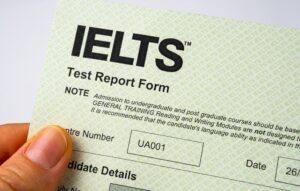
KUALA LUMPUR, 14.9.2021 – ‘Metaverse’, a seemingly futuristic prospect to the rest of the world is potentially becoming the reality of many South Koreans, most notably Generation MZ or Gen MZ.
Derived from the words ‘meta’ (beyond) and ‘universe’, the Metaverse is described as a virtual space in digital environments where users can play online games, use social media, utilize virtual reality, and more.
 Image source: Pexels
Image source: Pexels
Meanwhile, Generation MZ is a term coined from the merging of Millennials and Generation Z, which consists of individuals born between 1981 and the early 2010s.
As South Korea’s home prices and income inequality exponentially soar throughout recent years, Gen MZ is turning to the alternative online world to carry out virtual activities that they wouldn’t be able to achieve otherwise.
For example, users of the metaverse can create digital avatars and use them to play games, hang out with friends, and even host a luxurious party.
While the extent and duration of a full replication of real life remain uncertain, South Koreans continue to be drawn towards the appeal of the metaverse.
A South Korean engineer, Shaun, who had insisted on being identified by his avatar’s name, made a huge investment into his own virtual land with the intention to turn it into a long-term investment. The idea of a metaverse appealed to Shaun as the construction of the virtual world will not face any issues caused by the Covid-19 pandemic, such as increased costs and labor shortages.
Shaun also believed that his project, which is based in Decentraland (one of the metaverse platforms that operate using Ethereum or blockchain) can potentially lead to a profitable business model in a few years’ time.
“I’m planning to design my building which is suitable to host K-pop live performances and K-drama screenings,” the 30-year-old said.
Metaverse also appeals to users who want to build cities and create businesses on a virtual land.
By purchasing ‘land’ in the virtual world, the owners can host real businesses just like in the real world, such as a nightclub as well as online game rooms, something which the video game Fortnite is already doing.
Just like in the real world, the value of the virtual land can increase based on the success of a business as well as the community’s support.
The scale of its influence in South Korea is fortified with the participation of telecom firms, investment managers, and even the government, such as:
Samsung Asset Management with its Samsung Global Metaverse Fund;
SK Telecom, South Korea’s largest mobile carrier with its metaverse that users can host and attend meetings with animated avatars; and
The Ministry of Science and ICT with a 604.4 trillion won budget for 2022 in hopes of leading in the metaverse industry and to adopt metaverse as a new industry.
With the metaverse gaining popularity in South Korea, a technologically advanced and digitally connected country, it is no surprise that the rest of the world will soon follow suit.

Jocelyn Cheng
Jocelyn Cheng (JC) is an INFP writer seeking to spread inspiration and spark connections through her words. Her dedication to writing has gifted her with an ability to write for multiple platforms (e.g., website, social media, newspaper, magazine, etc) in different fields, namely Education, Travel, and Lifestyle. JC personalizes her works by adding a touch of her own experience into the mix whenever she can to relate to her readers. A self-proclaimed poet and currently a freelance writer, she's working on an untitled poetry book at home while juggling between writing for Eduloco, dancing, and keeping her only plant alive.





